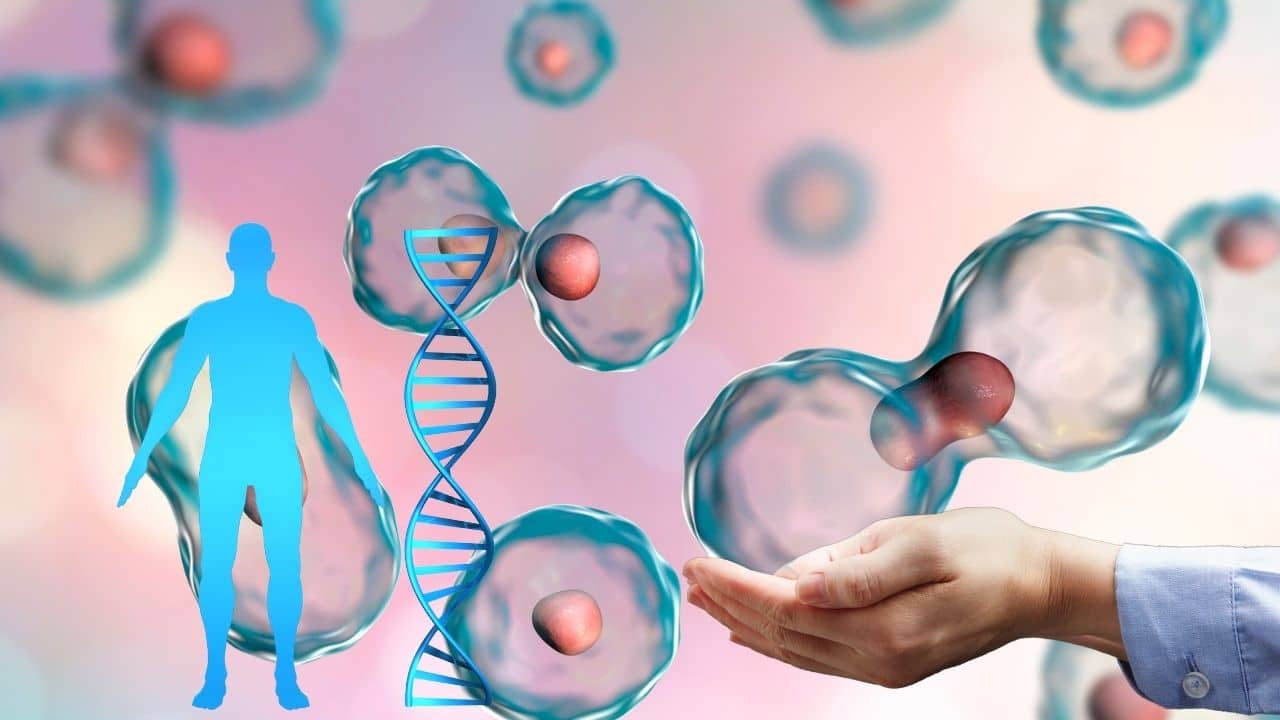Neanderthal genes and effects on human
Ancient humans known as “Neanderthals” lived in Eurasia until about 40,000 years ago. They are now extinct. We now know that they interbred with us when we first saw them outside of Africa some 55,000 years ago, making them our closest living cousins. Because of this, everyone alive today who descended from people who lived outside of Africa during that time has acquired a tiny but considerable amount of Neanderthal DNA, which makes up roughly 2% of their genomes.
In many aspects, Neanderthals were physically distinct from modern humans. They had bigger brows and noses, and they were shorter and stockier. Like modern humans, they also possessed larger brains, but those brains were structured differently. Additionally proficient tool makers and hunters, Neanderthals.
Our immune systems, susceptibility to particular diseases, and physical appearance have all been impacted by Neanderthal DNA. For instance, some people are more prone to lupus and other autoimmune illnesses because they received Neanderthal DNA. Others have red hair and pale skin because they inherited Neanderthal DNA.
Additionally, Neanderthal DNA has been found to have contributed to our cognitive capacities, according to scientists. Some Neanderthal genes, for instance, have been associated with enhanced memory and problem-solving abilities.
Researchers from Europe have connected specific changes in this sequence to the possibility of developing more serious symptoms after contracting COVID-19.
The study identified significant regional variations in the prevalence of this genetic risk mutation. People in South Asia, where nearly half of the population carries the Neanderthal risk mutation, are particularly susceptible to it. In contrast to Africa and East Asia, where only around one in six persons possess the risk mutation, it is essentially nonexistent in Europe.
Neanderthal genetics and severe Covid risk
Scientists have discovered that Neanderthal DNA may have contributed to human susceptibility to COVID-19. A 2020 study published in Nature found that people with a specific Neanderthal DNA mutation had a greater chance of both developing and dying from COVID-19.
A Neanderthal gene variant on chromosome 3 is linked to a higher incidence of COVID-19. It is thought to encode a protein involved in the immune system’s response to infection. This gene variation may make people more likely to react violently to the SARS-CoV-2 virus, which can cause severe inflammation and lung damage.
Not everyone who carries the Neanderthal gene variant may develop severe COVID-19, so keep that in mind. Other factors, such as age, underlying health conditions, and exposure to the virus, also play a role.
However, the discovery of the association between Neanderthal DNA and COVID-19 risk is a significant advance in our comprehension of the illness. We might be able to create novel COVID-19 therapies and preventative measures with its assistance.
How does this affect me?
It’s crucial to discuss COVID-19 risk with your doctor if you have any concerns. They can determine your unique risk factors and make the most effective safety suggestions.
Additionally, it’s crucial to maintain current COVID-19 boosters and immunizations. The best defense against COVID-19-related severe illness, hospitalization, and death is vaccination.
Although it is still in its infancy, the area of Neanderthal genetics is rapidly expanding. Researchers are learning more about Neanderthal DNA and how it affects contemporary humans using new technology.
DNA stock from cavemen and the immune system
Our immune systems have been significantly impacted by Neanderthal DNA. For instance, some Neanderthal genes are associated with a higher risk of autoimmune conditions including lupus and psoriasis. There has been evidence connecting additional Neanderthal genetics to a lower risk of infectious diseases including malaria and tuberculosis.
Neanderthal Genes and human DNA
Numerous other illnesses, such as diabetes, Parkinson’s disease, and Alzheimer’s disease, have also been related to Neanderthal genes and they have been migrated to human DNA. Although it is obvious that Neanderthal DNA plays a role in many disorders, scientists are still working to understand how it affects them.
Neanderthal Physical Features and our DNA stock
Our physical appearance has also been influenced by Neanderthal DNA. For instance, pale complexion, red hair, and blue eyes have all been connected to Neanderthal genes. A bigger nose and brow ridge are associated with additional Neanderthal genes.
Neanderthal Cognitive Capabilities and DNA
The DNA from Neanderthals has also influenced our cognitive capacities. Some Neanderthal genes, for instance, have been associated with enhanced memory and problem-solving abilities. Additional Neanderthal genes have been associated with elevated risk of autism and other neurodevelopmental disorders.
The Genetics of Neanderthals and Future Studies
Although it is still in its infancy, the area of Neanderthal genetics is rapidly expanding. Researchers are learning more about Neanderthal DNA and how it affects contemporary humans using new technology.
For instance, using gene editing techniques, researchers are producing human cells with Neanderthal DNA. They may now investigate the impact of Neanderthal DNA on gene expression and cellular processes.
Researchers are also obtaining Neanderthal DNA from fossils using antiquated DNA sequencing methods. They can learn more about the genetics and evolution of Neanderthals as a result.
Conclusion
A fast-expanding discipline that is assisting us in better understanding the biology and evolution of modern humans is the study of Neanderthal genetics. Researchers are learning more about Neanderthal DNA and how it affects contemporary humans using new technology. Our ability to treat diseases caused by Neanderthal DNA is being aided by this research.
You can also check out the article on the latest COVID-19 vaccine campaign CVS Covid Vaccine: Everything You Should Know
Please follow Discover the Ultimate Health Hacks That Will Transform Your Life!
Like and Subscribe to us!
